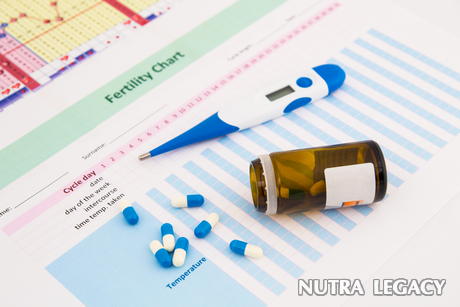Symptoms of Low Progesterone

- Understanding the symptoms low progesterone can help you find out if are suffering from a hormone imbalance
- If your estrogen and progesterone levels are not balanced you may need hormonal imbalance treatment
- Correcting progesterone imbalances is important because of the many functions of this hormone
Progesterone is produced in the ovaries as well as adrenal glands, and along with estrogen, plays a fundamental role, in conception and pregnancy. Sometimes, hormonal imbalance occurs in a woman’s body and symptoms of low progesterone become apparent. Following is a discussion on the functions of progesterone and why low progesterone should be addressed as a medical condition.
Functions of Progesterone
Progesterone plays a critical role in the second half of the menstrual cycle where it prepares the uterus lining to nourish the fertilized egg should conception have occurred successfully. In the event that there is no implantation, both estrogen and progesterone levels decline and the uterus lining disintegrates, resulting in menstruation. This monthly shedding of the uterus lining is thought to play a role in reducing the risk of uterine cancer. When pregnancy occurs, the placenta produces progesterone and throughout the pregnancy, the progesterone levels remain high.
During pregnancy, progesterone facilitates the growth of milk-producing glands. It is quite often used in birth control pills to suppress ovulation or thicken cervical mucus, causing it to be unwelcome to the sperm and restricting entry to the uterus.
Besides primarily reproductive functions, progesterone plays a key role in facilitating the growth of new bones and warding off osteoporosis. It is a basic component in the composition of many of the other hormones in a woman’s body. Progesterone works to combat stress. When stress afflicts us, during which process the adrenaline glands release cortisol, the body summons progesterone and directs it to combat cortisol. Should too much progesterone get diverted in the process, there will be too little left available which is required for a woman’s healthy sexual desire and this is translated to low interest in sex when under stress.
Progesterone is also an active agent in the metabolism of glucose, conversion of fats into energy and facilitating numerous other functions of the body’s cells.
Symptoms of Low Progesterone and Effects
A woman with low levels of progesterone may experience some of, although not limited to, the following symptoms: irregularities in menstrual cycle, infertility, depression, anxiety, vaginal dryness, painful intercourse and reduced libido.
Research has determined that low progesterone levels play a role in infertility in women as well as miscarriages, sometimes recurrent miscarriages. Progesterone creates an enabling environment for the fetus. During pregnancy, after the first trimester, the placenta continues to produce progesterone which facilitates the development of tissues in the uterus that will nurture the fetus. When progesterone levels are agreeable, this delays the shedding of the uterus lining that would otherwise result in menstruation. Should the levels of progesterone be low during the first weeks of pregnancy, it is likely to cause a miscarriage.
Correcting Low Progesterone Levels
Menopausal hormone therapy may make use of either estrogen therapy on its own or sometimes combine with progesterone to offer an effective strategy as a relief for menopausal discomforts. Progesterone and estrogen are also often used in combination as a hormonal imbalance treatment strategy in women who have reproductive disorders associated with hormonal imbalance.
The information supplied in this article is not to be considered as medical advice and is for educational purposes only.
|
| ||||||||||||||





 30 Jun 2009
30 Jun 2009